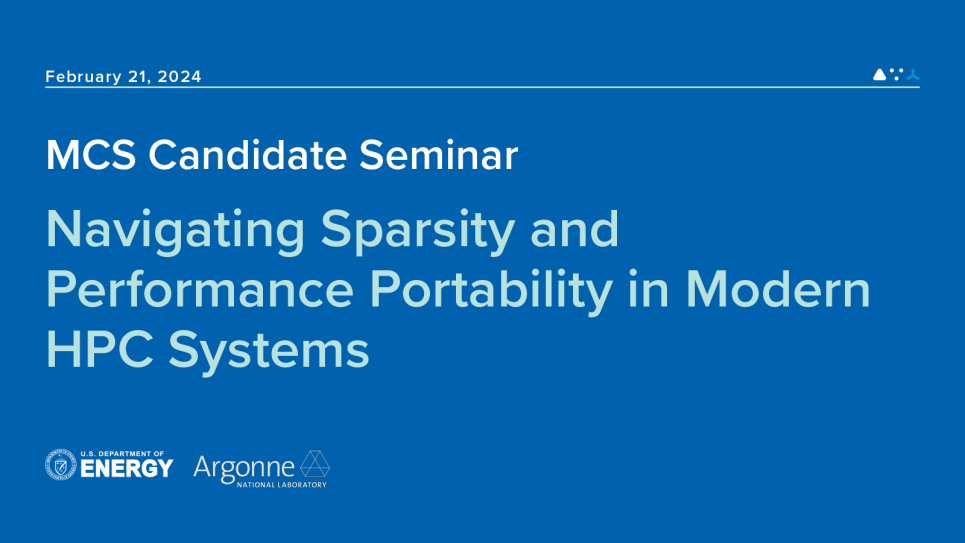
Navigating Sparsity and Performance Portability in Modern HPC Systems Speaker: Khaled Abdelaal
In the dynamic landscape of modern heterogeneous parallel architectures, critical challenges emerge, with two key focal points: Exploiting Sparsity and Achieving Performance Portability. Sparse data prevails in diverse HPC applications, including scientific computing and machine learning. Traditional methods used to store and process dense data are no longer appropriate for the new nature of data, presenting challenges in optimizing sparse matrix computations. As the performance of sparse matrix computations heavily relies on matching the matrix format with the underlying data structure, we present frameworks that automatically identify matrix structures, study parameterized graph models as structured proxies for generating sparse data and develop a structure-driven approach for performance evaluation. Concurrently, addressing performance portability concerns amidst a variety of accelerators, each tied to a specific programming language, is crucial. We propose a compiler-based approach for GPU programming, eliminating the need for multiple source-to-source translations and ensuring consistent performance across diverse architectures.
To add to calendar:
Click on: https://wordpress.cels.anl.gov/cels-seminars/
Enter your credentials.
Search for your seminar
Click “Add to calendar”